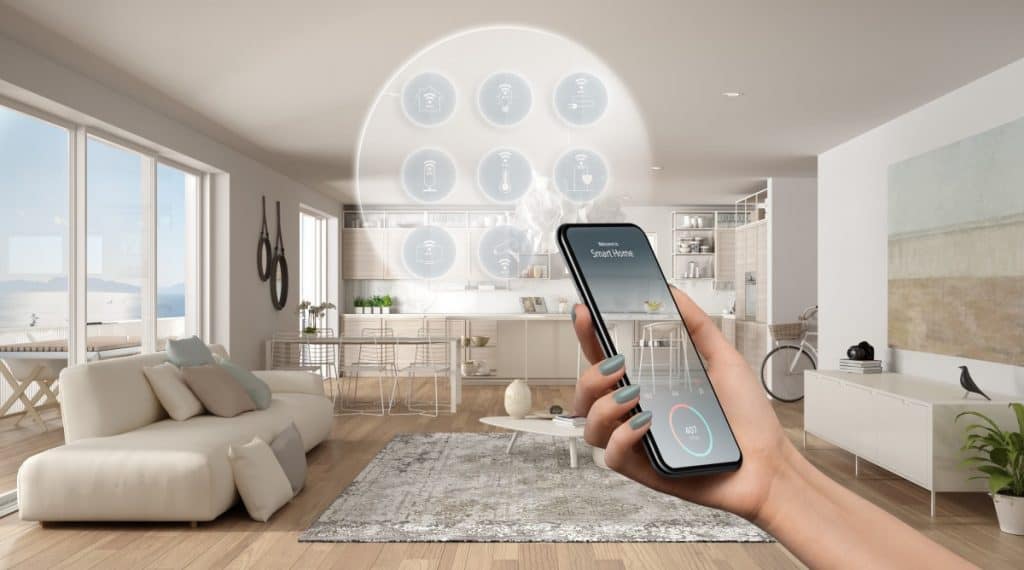
Smart home security integration: How it Protects Your Home
In today’s tech-savvy world, the concept of smart home security integration is becoming increasingly popular among home enthusiasts. With advancements in technology, protecting our homes has become more convenient and effective. This article will delve into the various aspects of integrating smart security solutions into your home, ensuring a safer and more connected living environment.

Understanding Smart Home Security
Smart home security refers to the use of internet-connected devices and systems to monitor and secure your home. These systems are designed to provide real-time alerts, remote monitoring, and automated control of various security aspects, such as cameras, alarms, and locks.
The Rise of Smart Security Systems
The rise of smart security systems can be attributed to the growing demand for convenience and enhanced security. With the ability to control and monitor security devices from anywhere using a smartphone or tablet, homeowners can have peace of mind knowing their home is protected, even when they are away.
Benefits of Smart Home Security Integration
Integrating smart security solutions into your home offers numerous benefits, including increased safety, convenience, and energy efficiency. Let’s explore these advantages in detail.
1. Enhanced Security
Smart security systems offer advanced features such as motion detection, video surveillance, and remote access, ensuring that your home is always under watchful eyes. These features deter potential intruders and provide valuable evidence in the event of a security breach.
2. Remote Monitoring and Control
One of the key benefits of smart home security is the ability to monitor and control your security devices remotely. Whether you’re at work or on vacation, you can access live feeds from security cameras, arm or disarm alarms, and even lock or unlock doors using a mobile app.
3. Energy Efficiency
Smart security systems can also contribute to energy efficiency by integrating with other smart home devices. For example, you can set your lights to turn off automatically when no motion is detected, or adjust your thermostat based on occupancy patterns.
Key Components of Smart Home Security
To achieve effective smart home security integration, it’s essential to understand the key components involved in a comprehensive security system.
1. Smart Cameras
Smart cameras are an integral part of any smart security system. They provide real-time video surveillance, allowing you to monitor your home from anywhere. With features such as night vision and two-way audio, smart cameras offer enhanced security and convenience.
2. Smart Locks
Smart locks allow you to control access to your home using a smartphone app or voice commands. You can create temporary access codes for guests or service providers, eliminating the need for physical keys.
3. Smart Alarms
Smart alarms offer advanced features such as remote arming and disarming, instant alerts, and integration with other smart devices. These alarms can be customized to suit your specific security needs and preferences.
Integrating Smart Security Systems
Integrating smart security systems into your home requires careful planning and consideration. Here are some steps to help you get started.
1. Assess Your Security Needs
Before investing in smart security devices, assess your security needs and identify the areas that require protection. Consider factors such as the size of your home, the number of entry points, and any existing security measures.
2. Choose Compatible Devices
When selecting smart security devices, ensure they are compatible with your existing smart home ecosystem. Look for devices that offer seamless integration with popular platforms such as Amazon Alexa, Google Assistant, or Apple HomeKit.
3. Install and Configure Devices
Once you’ve chosen your devices, follow the manufacturer’s instructions to install and configure them properly. This may involve setting up a central hub or connecting devices to your home Wi-Fi network.
Challenges of Smart Home Security Integration
While smart home security offers numerous benefits, there are also challenges to consider. These include potential privacy concerns, compatibility issues, and the need for regular maintenance and updates.
1. Privacy Concerns
With smart security systems, privacy concerns may arise due to the constant monitoring and data collection. It’s essential to choose systems with robust encryption and privacy features to protect your personal information.
2. Compatibility Issues
Compatibility issues can arise when integrating smart security devices from different manufacturers. To avoid this, opt for devices that adhere to open standards and offer compatibility with popular smart home platforms.
3. Maintenance and Updates
Regular maintenance and updates are crucial to ensure the optimal functioning of smart security systems. Keep your devices and software up to date to protect against potential vulnerabilities and security threats.
The Future of Smart Home Security
The future of smart home security looks promising, with advancements in technology paving the way for more innovative solutions. As artificial intelligence and machine learning continue to evolve, we can expect even smarter and more intuitive security systems that offer enhanced protection and convenience.
For more information on smart home integration, you can visit home integration, home systems, and home automation.

FAQs
1. What is smart home security integration?
Smart home security integration is the process of connecting various smart security devices and systems to create a cohesive and automated security solution for your home.
2. How does smart home security work?
Smart home security works by using internet-connected devices to monitor and control various security aspects, such as cameras, alarms, and locks, providing real-time alerts and remote access.
3. Are smart home security systems reliable?
Yes, smart home security systems are generally reliable, but it’s important to choose reputable brands and keep your devices and software updated to ensure optimal performance and security.
This article contains affiliate links. We may earn a commission at no extra cost to you.